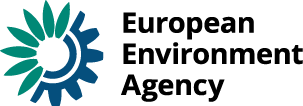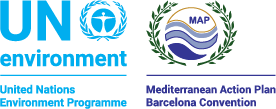National workshop on Marine Litter in Israel
As part of Israel SEIS national work plan and with the support of the ENI SEIS II South Support Mechanism, Israel Ministry of Environmental Protection organised a national workshop on Marine Litter, December 18th 2018 in Rmat Efal.
The workshop brought together the following stakeholders:
- Members of staff of the Ministry of Environmental Protection of Israel, Marine and Waste Divisions, The office of the Chief Scientist and other relevant agencies involved in designing the marine litter monitoring programme of Israel as well as in the design and implementation of marine litter measures to be included in the Israeli marine litter action plan;
- Representatives of local authorities in charge of keeping the beaches clean and/or managing waste and/or involved in designing/implementing the waste management plan of the municipality;
- NGOs carrying out marine litter surveys or interested in performing marine litter monitoring;
- Research institutes and academia working or interested in working on the issue of marine litter monitoring;
- Representatives of any related marine litter monitoring related projects.
The main outcomes of the worshop were:
- Enhanced understanding of key issues (technical, environmental, economic, health, cultural and social) related to marine litter;
- Deepened knowledge on the Barcelona Convention Regional Plan for Marine Litter Management in the Mediterranean and the three marine litter indicators adopted within the Barcelona Convention Integrated Monitoring and Assessment Programme of the Mediterranean Sea and Coast and Related Assessment Criteria (IMAP – Decision IG.22/7);
- Improved knowledge and understanding of appropriate marine litter monitoring schemes and methodologies;
- Strengthened capacities to monitor marine litter in a harmonized way and also enhanced skills to process the marine litter datasets and identify the marine litter sources.
- Improved knowledge and understanding of the challenges involved in identifying and implementing marine litter measures;
- Strengthened implementation of the Barcelona Convention Regional Plan for Marine Litter Management in the Mediterranean.
The main conclusions of the workshop are summarised below:
- Marine litter is a rapidly growing problem understood and perceived by everybody directly related to his/her behaviour. Therefore, we need to work in changing attitudes and behaviour related to the consumption and production patterns.
- The effective implementation of the Barcelona Convention Regional Plan for Marine Litter Management in the Mediterranean is the key in order to curb marine litter in Israel.
- It is of high priority for Israel the promotion of a circular economy through increased resource efficiency facilitating sustainable consumption and production patterns, including cradle-to-cradle life cycle design, high quality recycling and sustainable packaging, encouraging extended producer responsibility and environmentally responsible fishing and maritime transport practices.
- There is an imperative need to improve the scientific knowledge on amounts, pathways, distribution, trends and sources of marine litter in Israel in order to design and implement more effective measures. In this respect, the following activities should be undertaken by future research initiatives: a higher number of sites should be monitored in order to collect data on beach litter, floating litter and seafloor litter. Riverine inputs of marine litter should also be studied. Appropriate studies should be designed and implemented in order to shed light on the impacts of marine litter, environmental as well as socio-economic ones.
- It is highly recommended to promote participatory science campaigns in order to enhance the knowledge basis on marine litter. Such campaigns can be facilitated via the use of related tools such as the EEA’s Marine Litter Watch App.
- There should be a systematic and continuous promotion of sound educational and awareness raising programmes on marine litter at all levels.
- Civil society organizations are essential partners in showcasing and/or promoting marine litter prevention, reduction and mitigation measures.
- A solution oriented approach when communicating the problem of marine litter coupled with concrete showcases of feasible actions has a greater impact in terms of triggering action.
- Marine litter actions should take account the local specificities while linking to national and/or regional and international efforts, creating in this way a sense of broader participation, a momentum that fosters citizenship, co-responsibility and empowerment towards taking up individual and collective actions.
More information available here http://www.sviva.gov.il/InfoServices/NewsAndEvents/EventsCalender/Pages/2018/marine_litter_workshop.aspx


